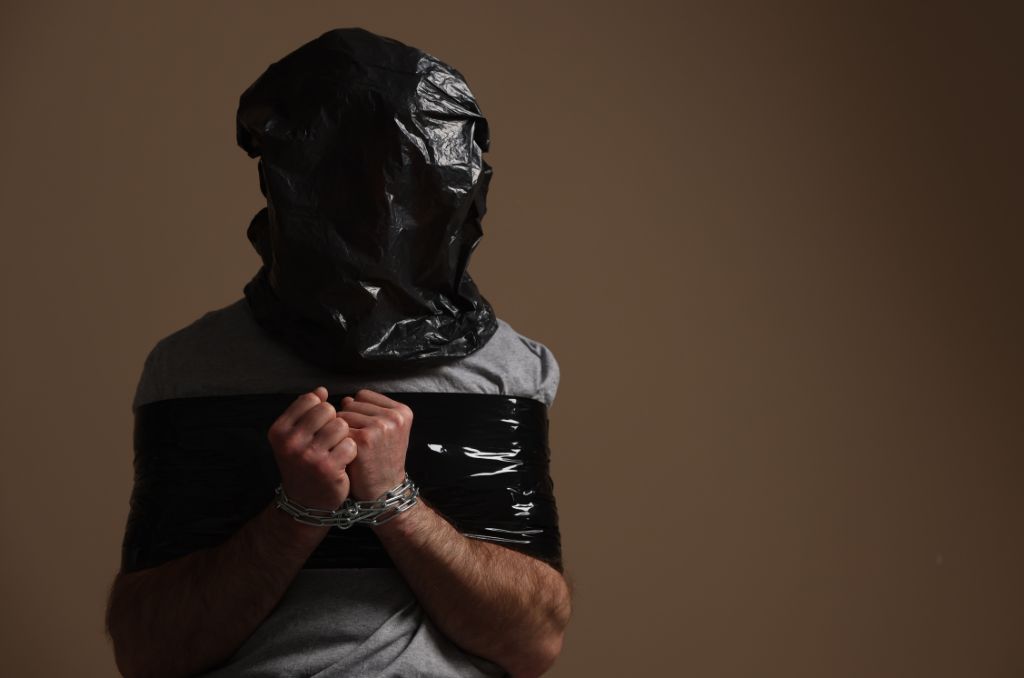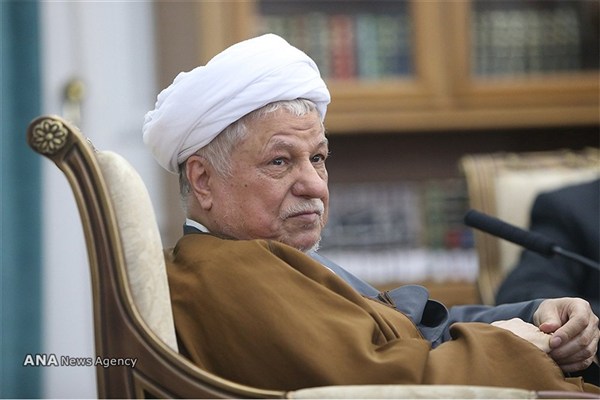
Intro: the following story is part two of Fear and Horror of Mykonos Murder: A Personal Story.
Four government-supported gunmen killed Sadegh Sharafkandi … for more details, please click this link.
Faraj Sarkohi, editor-in-chief for Adineh Magazine, published an article about the Mykonos murder trial in Berlin. A group of people connected to Iran’s establishment orchestrated Sarkohi’s kidnapping.
“What do you mean they kidnapped Faraj Sarkohi?” I shouted — in a hushed voice. The word “kidnap” was alien to me. As much as I knew what it meant, I couldn’t comprehend it.
“Faraj was leaving Iran for Germany. His family lives there. They kidnapped him on his way to the airport. No one knows where he is now,” Fariba said. Her voice was shaking.
I’m glad that you were at least able to leave the newsroom before the thugs barged in,” I said. “I know,” Fariba replied. “I was lucky, thanks to you. Otherwise, I would have been locked up in the newsroom until god knows when. Then, I had to find answers to the questions of those brainless thugs.” she said.
“The thugs,” whom we sometimes called “Baseejis” interchangeably, were a group of self-proclaimed revolutionaries determined to punish those who insulted the values of the revolution. In their minds, whoever contradicted the Supreme Leader was blasphemous, and deserved to be punished. Baseejis reminded me of the greedy dogs in Animal Farm by George Orwell.
In the newsroom, we all followed unspoken rules that indicated never crossing “the red lines.”
In Orwell’s story, the pigs were the rulers. They gave special privileges to the dogs, such as enough food to eat, or to sit closer to them, in return for their loyalty. The dogs fought for the pigs and punished whoever questioned or undermined the pigs’ authority.
Orwell wrote the novella to explain the Russian Revolution of 1917. He later said the same scenario applies to almost any revolution and dictatorial government. I agree with him.
“But before I left, Mousavian came back to the newsroom,” Fariba said impatiently. “He [Mousavian] said that Karbaschi has the order from the higher-ups to publish a story about Faraj Sarkohi’s safe landing in Germany.”
Gholam-Hossein Karbaschi was the mayor of Tehran. Although the municipality owned the paper, Karbaschi was considered the most important person at Hamshahri Newspaper. He was the most capable mayor that Tehran had seen since the revolution. Hamshahri Newspaper was the only daily paper that was published outside of the establishment’s direct control. Karbaschi set the tone for other independent groups to start their own dailies.
Karbaschi worked directly with Ali-Akbar Hashemi Rafsanjani, Iran’s former president. Rafsanjani was considered a reformist and the most pragmatic politician in Iran. Although wearing a long abaya and turban of clergymen, he was able to cut a deal with Iraq, and the Arab world retrospectively, convincing Khomeini, the founder of the Islamic Republic, to accept the truce and end the war.
We were too young and too ambitious to understand the effect of Sarkohi’s kidnapping in our professional lives.
People loved and hated Rafsanjani. They loved him for his pragmatism and hated him for his clergy background and wealth.
 Rafsanjani’s family owned numerous pistachio farms in Rafsanjan, a town in northern Iran famous for its soil to grow pistachio trees. He used his wealth to fund the revolution and eventually became the second president. He was one of the most powerful men in Iran’s political hierarchy.
Rafsanjani’s family owned numerous pistachio farms in Rafsanjan, a town in northern Iran famous for its soil to grow pistachio trees. He used his wealth to fund the revolution and eventually became the second president. He was one of the most powerful men in Iran’s political hierarchy.
A kidnapping of such scale couldn’t happen without a direct order from Rafsanjani and Khameini. But, could we follow the lead and publish anything suggesting that Rafsanjani and Khamenei were involved in the kidnapping? Never!
Before I go further, I want you to distinguish between Khamenei and Khomeini. The spelling of these two names is incredibly similar. There is only an “o” and an “a” difference in their spelling. Khomeini, with an “o” is the founder of the Islamic Republic who traveled to Iran and ousted the Shah. Khamenei with an “a” is the current supreme leader who replaced Khomeini.
In the newsroom, we all followed unspoken rules that indicated never crossing “the red lines.” Back in those days, the red line was to mention Khamenei in a bad light. He was a god. And a god must be kept sacred. Those who didn’t abide with the rules would be punished by his dogs, just like the ones in Orwell’s Animal Farm.
We never had permission to run stories about the Islamic Revolutionary Guard Corps, or anything about the supreme leader’s family, either past or present. We never could criticize the war between Iran and Iraq, etc. The red lines were long, vague, and forbidden. In newsrooms, we tried to keep our mouths shut, as much as we could. But we never tired of pushing for the boundaries.
It was around 8:30 p.m. Fariba called me from Hamshahri Newspaper‘s landline about an hour ago. I have already heard that some opposition leaders or dissidents have been kidnapped. But the kidnapping of a renowned editor in Iran’s capital was a new low for Iran’s political establishment.
 “Do you think they will run a story about Sarkohi’s safe landing in Berlin?” I asked Fariba. “I don’t think Karbaschi has any other options. If Rafsanjani and Khamenei want him to publish a lie, he has to do it, even though he doesn’t want to,” she replied. “And what about Mousavian? Do you think he’ll publish the lie,” I asked. “He has to. He’s got five kids to feed,” Fariba replied.
“Do you think they will run a story about Sarkohi’s safe landing in Berlin?” I asked Fariba. “I don’t think Karbaschi has any other options. If Rafsanjani and Khamenei want him to publish a lie, he has to do it, even though he doesn’t want to,” she replied. “And what about Mousavian? Do you think he’ll publish the lie,” I asked. “He has to. He’s got five kids to feed,” Fariba replied.
I took my warm cup of tea in hand and threw myself to the back of my chair. I released a very big sigh and got lost in my thoughts. Fariba was very quiet, too. She was thinking.
We were too young and too ambitious to understand the effect of Sarkohi’s kidnapping in our professional lives.
Two minutes later, I asked her: “For the sake of just imagining,” I said enthusiastically, “let’s say we worked for the Washington Post. How would we run the story of Faraj Sarkohi’s kidnapping?,” I asked.
“Depends,” she said.
“What do you mean,” I asked, surprised. I thought the answer was straightforward.
“I read books about slaves and black people’s kidnappings by different groups back in the older days of the United States. Or, why do we talk about the older days? My brother tells me that black people still get kidnapped in some parts of the country. No publication runs stories about their disappearance. On the other hand, if a white editor from a well-established publication disappears, I bet all the publications in the U.S. would want to know what’s happening.” Fariba replied.
Fariba was my close friend at Hamshahri Newspaper. She has traveled to the U.S. several times to visit her brother and her family members in Los Angeles and New York. She never liked the U.S. and never talked about it in a positive tone. She held the United States accountable for some of Iran’s misery.
Fariba never stopped talking about the sanctions that the U.S. imposed on Iran, or all the secret budgets that the Pentagon and CIA dedicated to undermine Iran’s authority in the region. She also never forgave the United States for overthrowing Mosadegh’s government, the first democratic government in the Middle East.
“The United States conducts any heinous act to silence and control Iran,” she always said.
“I think Iran will end up leaking her own spit if they publish that Sarkohi landed in Berlin safe,” she finally said. “His wife and son are there. They will report him missing unless Rafsanjani kidnaps them, too,” Fariba laughed bitterly.
Related stories of the same series:
#1: To change hijab law, I had to become president
#2: Mr. Mousavian and my next step toward Iran’s presidency
#3: Sexual Attention in Iran, Don’t Even Mention It!
#4: Komiteh or Morality Police in Iran Created Fear & Intimidated People: Personal Story
#5: Fear and Horror of Mykonos Murder: A Personal Story
Please Pledge to Our Peace Journalism.
Goltune is editorially independent. We set our agenda. No one edits our editors. No one steers our opinion. This is important as it enables us to stay true to our values.
Every contribution we receive from readers like you, big or small, goes directly into funding our journalism. Please support Goltune, large or small.
Send your contributions to our PayPal account: [email protected]
Or, Click the link to pledge your support.
Thank you,
Goltune Editorial Team






